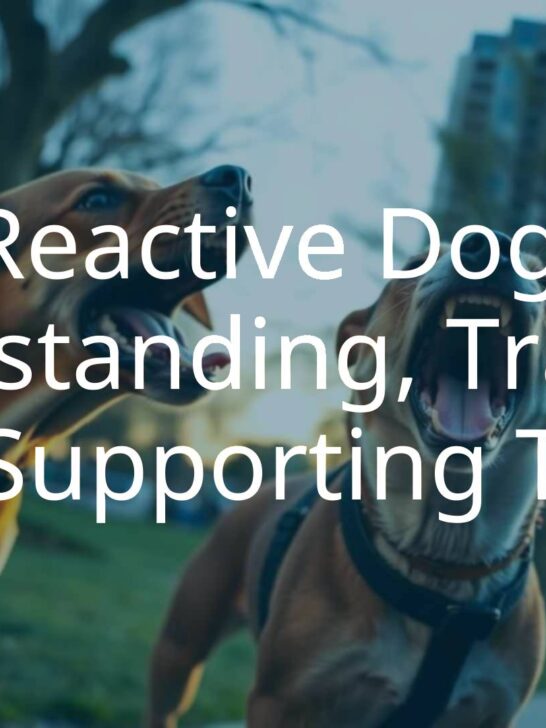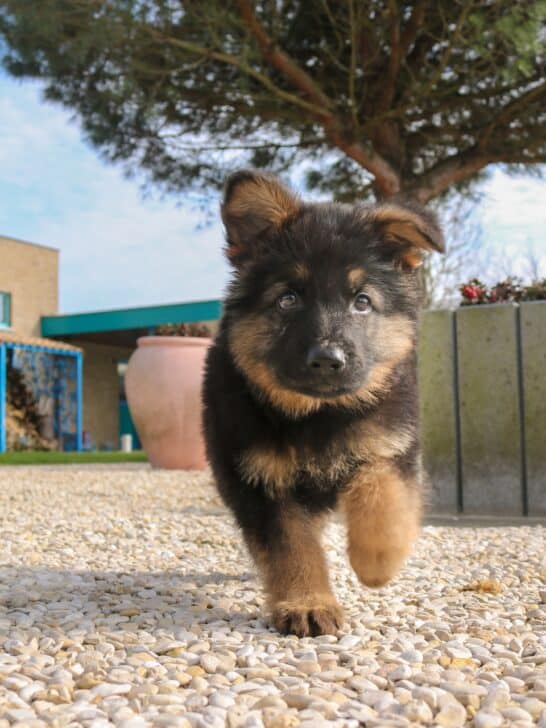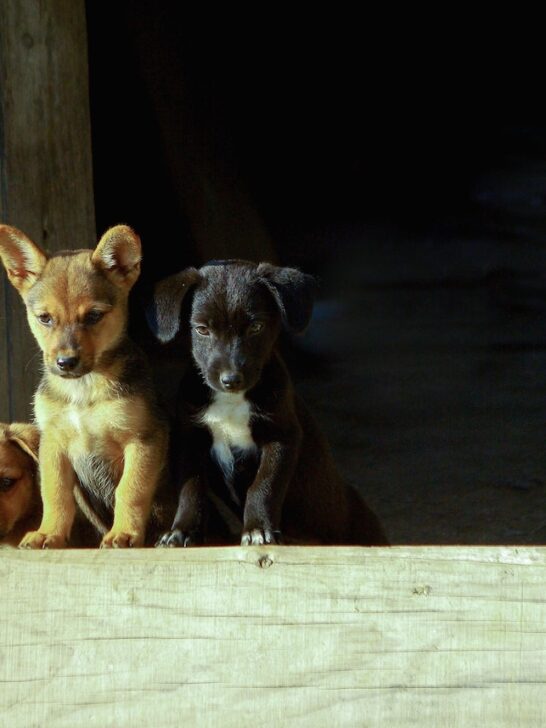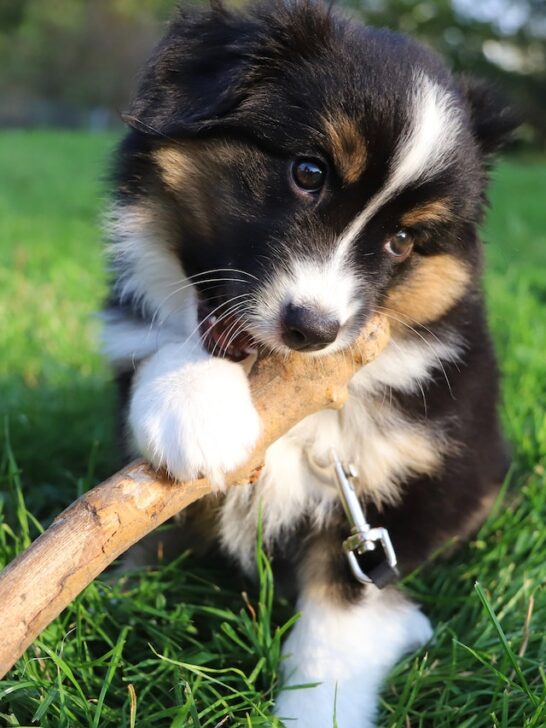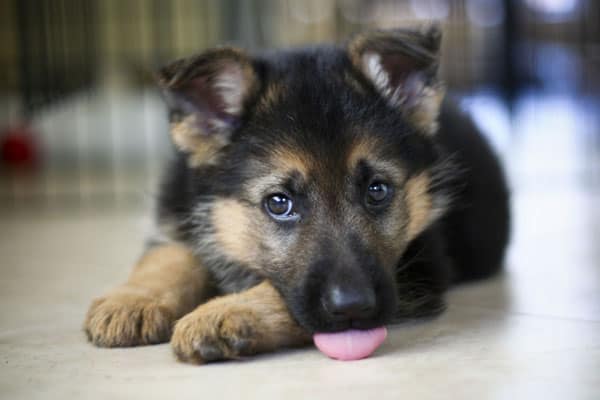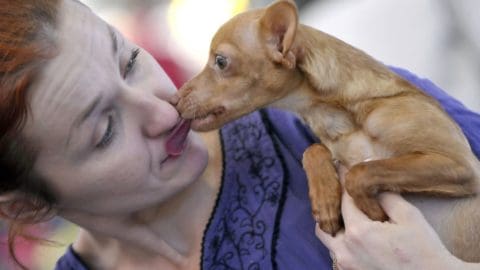Do Mom Dogs Miss Their Puppies When They Leave? A Guide On Dog Depression After Puppies Leave
Many new breeders want to know whether their mother dog will miss her puppies when they go to their new homes.
But it is not a simple ‘yes’ or ‘no’ question – the answer depends on the conditions under which the puppies are removed and the individual personality of the dog.
Mother dogs will form a bond with each of their puppies and recognize them as individuals. Mothers can even recognize their offspring up to two years after they have been removed from her care!
So every mother has the potential to feel upset by the loss of her puppies. How she feels will depend on her breed, her hormones, and how old the puppies are when they leave.
Symptoms Of Dog Depression After Puppies Leave
Just like people, dogs get sad when their puppies leave. It’s important to recognize the symptoms of dog depression during this time. Signs may include loss of appetite, lethargy, increased whining, and decreased interest in play. Your furry friend might be feeling sad, anxious, or even get depressed. Providing extra love, attention, and interactive toys can help them through this period of adjustment. Keep an eye on your dog’s emotional well-being, and don’t hesitate to consult a veterinarian if you’re concerned about their mental health after the puppies are taken away.
How Long Do Mom Dogs Miss Their Puppies For?
The hormones released during pregnancy and birth, specifically oxytocin, will considerably increase the mother dog’s maternal instinct.

Stay Connected!
Get updates on the latest posts & more from Anything German Shepherd – straight to your inbox. SUBSCRIBE I consent to receiving emails and personalized ads.
Oxytocin is known as the hormone of love and jealousy, which explains why mother dogs are so fiercely protective of their young whilst showing deep care and affection towards them.
The dog’s hormone levels will reduce gradually over time with the puppies, and the intense maternal instinct will fade.
Some dogs retain their maternal instinct even after all of their puppies have been rehomed. They can display unusual behaviors like carrying around soft toys or caring for other dogs.
If you keep one of the puppies from the litter, the mother will likely form a close bond with it over time. This bond will be more akin to a dog friendship than a mother-child relationship.
Studies have shown that the more litters a mother has, the less attached she becomes to the puppies. This would make sense, given that she will begin to expect them to be taken away.
It is widely known that puppies should stay with their mother where possible until they are at least 8 weeks old.
This gives the mother time to teach the puppies important life lessons and social skills, like grooming and interaction with other dogs.
By this time, the mother’s nipples will have begun to feel sore due to the puppies developing sharp teeth.
Remove Puppies At The Right Time
The puppies will be getting bigger and more active, making the mother feel more tired. She will likely begin to avoid her puppies for portions of the day to get some much-needed rest and space.
Remember that the bigger the litter, the harder work it is for the mother and the more rest she will need.
Some mother dogs of certain breeds are able to remain with their puppies until the litter has reached 12 weeks of age- it depends on the temperament of the breed and personality of the individual dog.
Even so, make sure your mother’s dog has an area where she can take time for herself away from the puppies when she needs it.
This will help to prevent her from snapping at the puppies or accidentally injuring them and will reduce her stress levels.
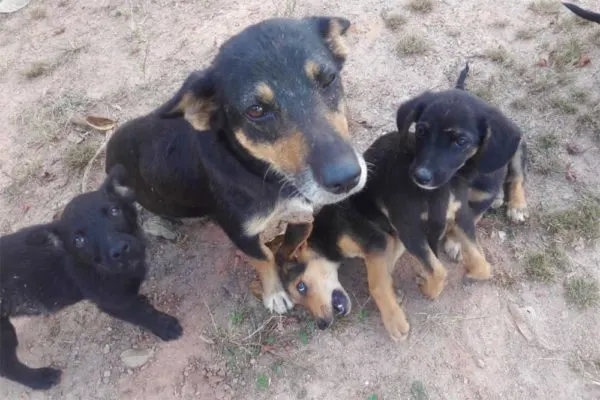
Is It Cruel To Take Puppies From Their Mother?
It is best to get the puppies separated from their mother gradually. Separate the puppies from the mother for a small amount of time each day, and try to remove only one puppy at a time.
If all of her puppies are separated after the mother has spent all her time with them for eight weeks, she will certainly grieve for her loss. A sudden loss of this nature can also cause extreme anxiety.
When each puppy is removed, the mother dog may look for it for several days. If all of her puppies leave at once, she may become frantic. Looking after the remaining puppies will be a good distraction for her.
Dogs are aware of how many puppies are in their litter- if a stillborn puppy is removed during labor, the dog will look for it later.
It’s Natural That Puppies Leave Their Mom
Some new breeders feel cruel for removing a mother’s puppies, but it is important to remember that this also happens in nature.
Whilst some pups will stay with their mothers in the wild, in most canine species, a proportion of them will leave the pack to start their own group.
It would be more cruel to keep the full litter of puppies with the mother, as she would feel overcrowded in her own home and would struggle to get the rest she would need.
It is possible that some puppies will be rejected by their mothers due to illness or a biological issue.
Keep an eye out for this if you are breeding, as the rejected puppy may struggle to get enough food and could lack socialization.
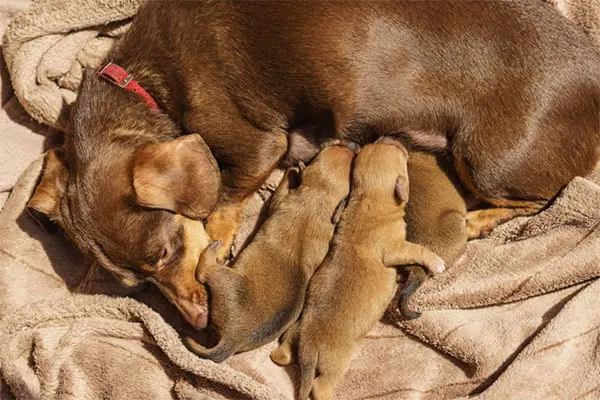
How a dog reacts to motherhood will depend largely on their breed and their individual personality.
Jack Russells are not well known for their maternal instincts, whereas gentle breeds such as Labradors and Golden Retrievers are.
What To Do When Mother Dogs Miss Their Puppies?
If your dog is struggling as her puppies leave the home, try distracting her with fun outings and plenty of attention.
Reduce her food back down to pre-pregnancy levels, as this will help to encourage her milk to dry up.
Make sure the mother has access to the puppies when she wants them so she doesn’t feel out of control.
It may help the mother to see her puppies interacting with their new families before they are taken so she is not left confused about what happened to them.
Remember that having a litter of puppies takes its toll on the mother’s body. Make sure she has regular checkups with a vet.
They will make sure that she is healing correctly, her body is recovering, and there are no complications with mastitis or hip displacement.
Do Puppies Miss Their Mum?
Puppies rely on their mothers for every aspect of their care, so it is only natural that they will miss their mothers when they move on to their new home.
As long as they are properly socialized, they should settle into their new home and will usually stop pining for their mothers by the time they reach 12 weeks of age.
FAQ
Do dogs miss their puppies?
Yes, research has shown that dogs can miss their puppies. Mother dogs naturally form a strong bond with their puppies and when they are taken away, the mother may feel sad and miss them.
Do dogs get sad when their puppies leave?
Yes, dogs can get sad when their puppies leave. The bond between a mother dog and her puppies is a strong one, and when the puppies are taken away, the mother may feel a sense of loss and sadness.
Can dogs recognize their puppies?
Yes, dogs can recognize their puppies. Dogs have an incredible sense of smell and can recognize the unique scent of their own puppies. This helps them to identify and recognize their offspring.
Can dogs remember their puppies?
Yes, dogs have the ability to remember their puppies. Dogs have a strong memory, especially when it comes to important events and relationships. A mother dog can remember her puppies even after they have been separated from her.
How do dogs adjust to their puppies being gone?
Dogs may take some time to adjust when their puppies are no longer with them. They may go through a period of mourning and sadness, but with time, they can adapt to the change and move forward.
Can dogs have a new puppy after their puppies are gone?
Yes, dogs can have a new puppy after their previous litter has left. However, it is important to give the mother dog time to recover both physically and emotionally before introducing a new puppy into her life.














